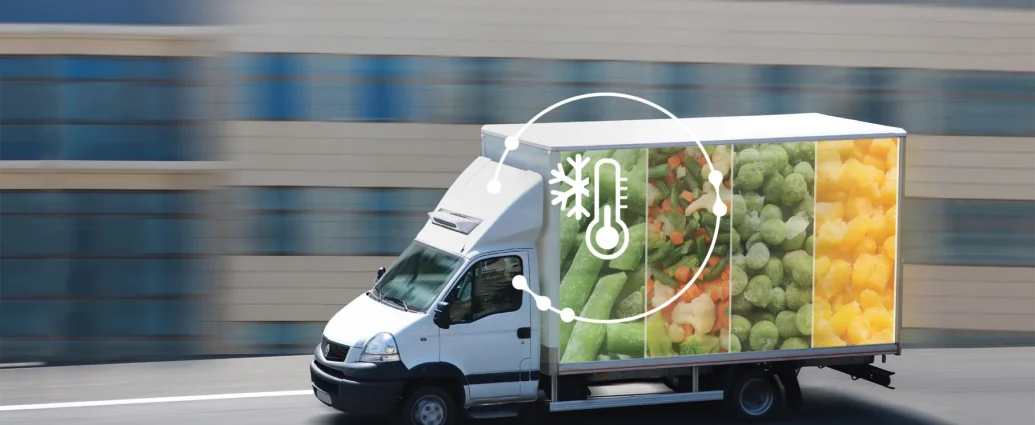
In an increasingly interconnected world, safeguarding the integrity of our food systems has never been more critical. The term “food systems” refers to all the elements and activities related to producing and consuming food, and their effects, including economic, health, and environmental outcomes. From the producer’s field to the consumer’s plate, the entire food production and distribution chain relies heavily on precise measurement and control systems.

For example, a large food distribution company that specializes in the delivery of fresh produce relies on a fleet of refrigerated trucks to transport goods from the warehouse to various retailers. Maintaining the cold chain is critical to ensure that perishable products, such as fresh produce, dairy, and frozen goods, remain safe for consumption. Proper temperature and humidity control are essential to prevent bacterial growth and maintain product quality. A slight miscalibration or deviation from the required conditions can lead to far-reaching consequences.
A slight miscalibration or deviation from the required conditions can lead to far-reaching consequences.
Let us explore the often-overlooked yet immensely important role that proper calibration plays in securing our food systems. We will discuss the significance of calibration and how it can make or break businesses in the food industry.
The Unseen Heroes: Calibration’s Role in Food Systems
- Ensuring Consumer Safety: In the world of food, safety is paramount. Precise measurement and control systems play a pivotal role in preventing contamination and ensuring the products we consume are safe. Whether it’s the correct measurement of ingredients or maintaining optimal storage conditions, calibration is the unsung hero in keeping consumers safe.
- Navigating Regulatory Compliance: The food industry is governed by strict regulatory standards, and adhering to these standards is non-negotiable. Accurate calibration helps businesses meet these regulations, significantly reducing the risk of expensive fines and legal complications.
- Consistency is Key: Consistency is a competitive edge in the food industry. Accurate calibration ensures that products maintain the same high standards every time, fostering trust and loyalty among customers.
- The Path to Efficiency: Efficiency is paramount in an industry where perishable goods need to be processed and distributed promptly. Well-calibrated measurement systems can significantly boost operational efficiency, reducing waste and enhancing overall productivity.
Unsung Heroes
Behind the scenes, calibration laboratories play a pivotal role in safeguarding the food systems we depend on. Their expertise is crucial for the industry to thrive, yet their role often goes unnoticed.
Calibration services, provided by ISO/IEC 17025:2017 accredited laboratories like Selfa, ensure that these unsung heroes continue to perform their silent duty.
Embrace the idea that calibration services can become silent guardians of your business, the invisible hands that ensure your products are safe, consistent, and efficient. Take a moment to consider how precision behind the scenes can make a significant difference in the grand narrative of the food industry.
Let us explore some of the consequences of miscalibration for a large food distribution company that specializes in the delivery of fresh produce relies on a fleet of refrigerated trucks to transport goods from the warehouse to various retailers.
- Food Safety: If the temperature sensors inside the refrigerated trucks are even slightly miscalibrated, it can result in temperature fluctuations. This can lead to bacterial growth in the products, making them unsafe for consumption. In the worst-case scenario, consumers may fall ill due to foodborne illnesses, leading to potential legal actions against the food distribution company.
- Product Quality: The quality of the fresh produce is also affected. A miscalibration causing temperature fluctuations can lead to the deterioration of the products, resulting in unsellable or lower-quality items upon arrival at the retailers. This directly impacts the company’s finances as they may need to compensate for losses or discard spoiled products.
- Reputational Damage: Consistent miscalibrations can lead to a tarnished reputation for the food distribution company. Retailers and consumers will lose trust in their ability to provide safe, high-quality products. This loss of trust can result in reduced business and profitability over time.
- Compliance Issues: In the food industry, regulatory bodies have strict standards for temperature and humidity control. Even slight miscalibrations that lead to non-compliance can result in fines and penalties for the company.
To prevent these consequences, the food distribution company must invest in precise calibration and regular maintenance of its cold-chain monitoring systems. Accurate calibration ensures that temperature and humidity readings are reliable and within the required ranges, thereby safeguarding food safety, product quality, and the company’s reputation. It also ensures compliance with industry regulations, reducing the risk of legal actions and fines.
Final Word…
In a world where food systems are integral to our well-being, calibration services silently secure this essential aspect of our lives. They are the silent guardians of an industry that feeds nations.
The next time you walk into a supermarket, dine at a restaurant, or cook a meal at home, take a moment to appreciate the unseen forces at work, ensuring that the food you enjoy is safe, consistent, and high-quality.
And for those who wish to explore the world of calibration services, consider how these silent guardians can support your journey in the food industry. Calibration is the key to unlocking excellence.
Talk to us today about how Selfa can help you improve the efficiency and effectiveness of your measurement and control systems.



Comments are closed, but trackbacks and pingbacks are open.